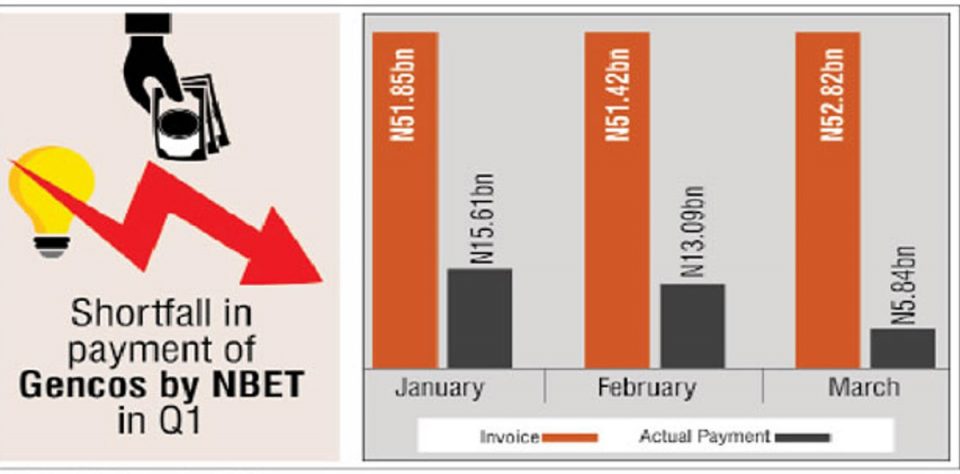The Nigeria Bulk Electricity Trading Plc failed to pay 25 power producers a total of N119.55bn in the first three months of this year for the electricity produced and fed into the national grid.
The government-owned NBET buys electricity in bulk from power generation companies through Power Purchase Agreements and sells through vesting contracts to the distribution companies, which then supply it to the consumers.
NBET received a total invoice of N156.12bn from the Gencos in the three-month period but only paid N34.54bn, representing 22.12 per cent of the invoice.
The power stations gave NBET a total invoice of N51.85bn in January; N51.42bn in February, and N52.82bn in March.
The payment made to the Gencos by the bulk trader in January was N15.61bn (30.11 per cent) but it fell to N13.09bn (25.46 per cent) in February and N5.84bn (11.05 per cent) in March.
The total power generation in the country increased slightly to 3,050.7 megawatts as of 6am on Tuesday from 2,985.9MW on Monday, data obtained from the Nigerian Electricity System Operator showed.
Nine of the 27 power plants on the grid were not generating electricity as of 6am on Tuesday, according to the system operator. The idle plants included seven of the eight built under the National Integrated Power Project.
The nation generates most of its electricity from gas-fired power plants, while output from hydropower plants makes up about 30 per cent of the total generation.
The amount of available generation capability left unused on Tuesday stood at 2597.1MW, as a result of low load demand by Discos (2212.1MW), water management (275MW) and line constraints (110MW).
The Executive Secretary, Association of Power Generation Companies, Dr Joy Ogaji, said recently that the available generation capability rose to 8,145MW in 2020 from 7,381MW in 2019.
She said the high liquidity squeeze in the market was a major setback for the Gencos.
“It is on record that generation companies are being owed over a trillion naira on power generated, supplied and consumed.”
She added that the debt burden had reduced the Gencos’ ability to pay gas supplies, meet other obligations and hence threatened to completely undermine the electricity value chain and its ability to continue to serve customers.



